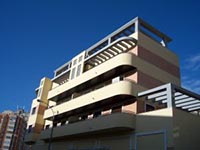The first step to building a house in Spain is choosing a property. When exploring a certain area, it is advisable to learn about the medium-term infrastructure plans of that place with the regional authorities. Road and railway projects may be underway, and this could mean that in a few years, the area will not be as quiet and isolated as it is now. Details about infrastructure development for the next ten years are usually made available to the public upon request, and it is a good idea to take a look at these when buying your property.
It is also necessary to find out if the property you wish to buy is located in an area where building is permitted. Areas marked suleo rustico are governed by rural land law and are either categorized as Suelo no urbanizable protegido, which is special protected land that can’t be used for residences, and Suelo no urbanizable común, which has no special protection and may be used to develop private use residential homes.There are special restrictions when it comes to rustic plots, and these differ from one planning zone to the next. Usually it is required that the construction follows typical regional style aesthetics. Areas designated as suelo urbano allow building of houses. These are urbanized plots with access to roads, electricity and water. At the local town hall, you can obtain a certificado urbanistico for the plot of your choice, a document signed by the urban planning agency that specifies the plot type, occupation purpose, building area and type of building. This document explains all the development possibilities of your preferred property.
It may also be helpful to consult a trusted architect who can ascertain if the plot is suitable for construction. Another beneficial step is to have a land survey done, which will check the boundaries and water rights and detect any restrictions such as water pipes or electricity lines that may come in the way of building. When buying land in rural areas, it is especially helpful to consult a lawyer who can check the conditions and regulations governing that property. Owners or agents keen on selling their property may be quick to assure you that you will get planning permission, but this must be looked into independently as well. Rural properties must also have reliable water supply, as drought can be an issue in some areas like southern Spain.
Before construction can begin, you need to obtain a licencia (building permit). This permit is of two types: minor works and major works. The permit for major works applies to new buildings, and to obtain it you require a technical dossier drawn up by an architect registered at the Spanish architecture college, a technical architect who will act as a site manager and is usually appointed by the architect, and a builder. All of them are required to sign on the application, which must be submitted to the local government office. A receipt will be issued to you and the application will be processed within a couple of months, during which time it is verified for compliance with building rules. After approval, the building permit will be delivered.
Make it a point to select an architect and builder after obtaining recommendations from trusted locals. Other expats can also be reliable sources of information. Many local architects speak English, and there are also foreign architects working in the country. The fees of an architect are usually 5 to 10 percent of the total cost of the work. Approximately 70 percent of the architect’s fees are payable when the construction begins and the remaining is paid upon completion, when license for the first occupation and declaration that the home is habitable are issued by the town hall.
Spanish law states that all parties involved in the building construction carry some responsibility. The builder is responsible for any damage caused by faults or defects in execution of the finished product up to a year after completion. There is also a three-year liability for damage resulting from a professional’s failure to fulfill habitability requirements. Surety policies are also necessary to compensate for damages arising due to a building’s stability or mechanical resistance due to builder error.

